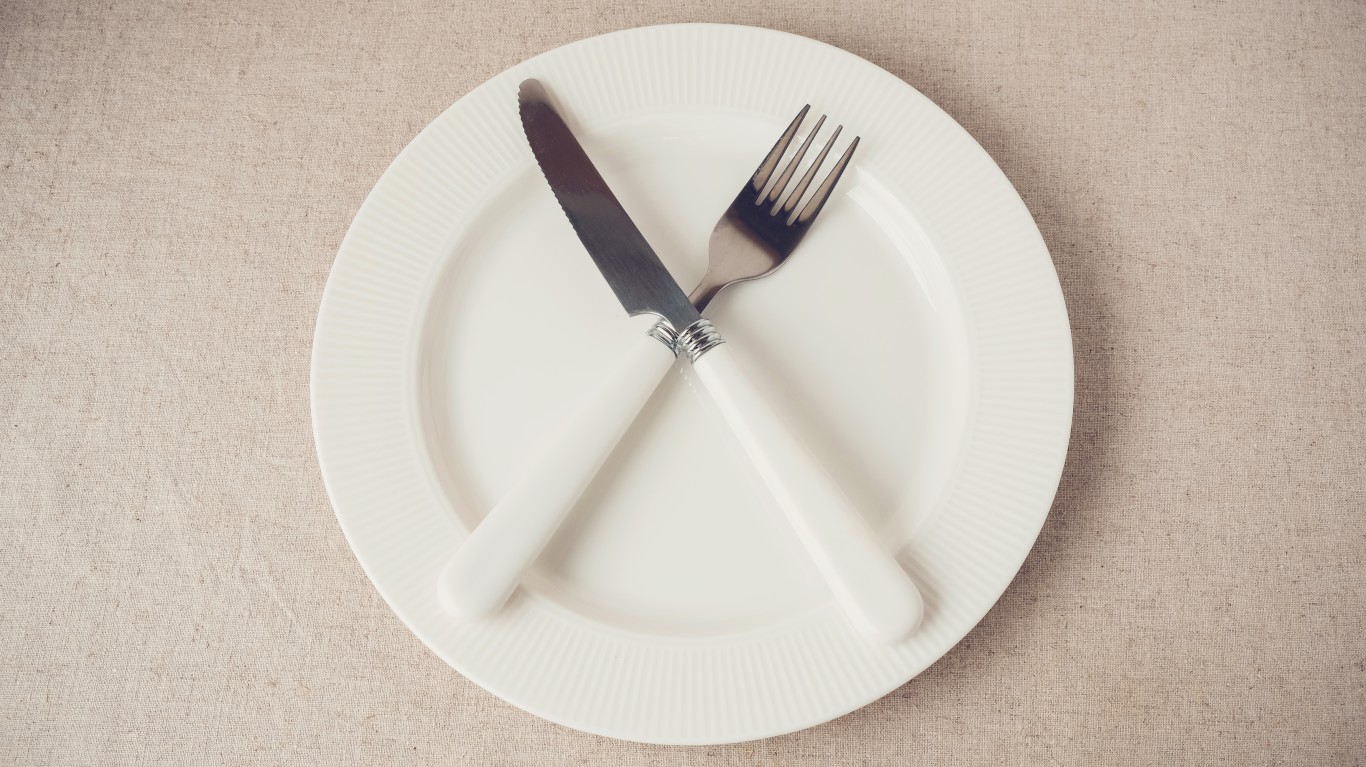

People — on and off the internet — have a lot to say about weight loss. So much so that trying to find out whom to listen to can be overwhelming, and it’s difficult to be sure what true.
One undeniable fact is that being overweight or obese can contribute to numerous health problems such as diabetes and heart disease. But losing the excess pounds is no rocket science and, unfortunately, and there is no single solution that works for everybody.
24/7 Tempo consulted several nutritionists and fitness trainers to identify at least 27 myths about weight loss that can actually result in weight gain.
The short answer is that people should shed pounds in a safe, smart, and sustainable way, which usually involves not believing everything you read online and consulting with a professional. Eating a balanced diet is key, but not all foods and drinks are created equal – these are some “healthy” foods that are actually ruining your diet.
There is no denying that losing weight is hard work, whether you’re trying to get rid of 5 or 25 pounds. They key to long-term success is how you approach that goal and whether you manage to avoid some common mistakes.
Click here to learn about the 28 weight loss myths that pack on pounds.

1. Exercise is enough
It’s hard for some people to accept that they have to work out to lose weight, but it’s equally hard to convince those who think exercise is all it takes to lose weight that exercise is a relatively small part in weight loss. “In reality, it’s more like 80% nutrition and 20% exercise,” Susan Fink, a personal trainer in Los Angeles, said. People underestimate how much they eat and overestimate how much they exercise, she added. “They think they burn a lot more calories than they actually do.” This makes them think it’s okay to eat more, and the result is no weight loss at all or even weight gain, she noted.
[in-text-ad]

2. Eating late at night is bad
Many people have heard that eating after 7 p.m. is going to lead to weight gain. But eating at night is like eating at any other time of the day. “You should absolutely have dinner if you haven’t eaten,” Shira Hirshberg, a registered dietitian nutritionist in Rhode Island, said. Every person needs a certain amount of calories a day, and if you don’t exceed them, then eating at night will not lead to extra inches around the waist, she noted.

3. Working hard is all it takes
“People often think that all they need to do is work hard, and that will lead to results,” Tracy Brown, a registered dietitian in Florida, said. “But the body will resist changes and perceive them as famine.” This is why some people are struggling to lose weight — they get discouraged when they actually need to look at the real motive behind their weight loss goals and see if there are other lifestyle changes they can make to achieve their goals, she added.

4. Sudden changes work
You want to lose weight and decide to make some changes, but implementing them all at once can be counterproductive. For example, if you lead a sedentary lifestyle, then certainly starting to go to the gym will help, but you can’t do that seven days a week right from the start, Fink noted. “In order to lose weight and maintain your new healthy weight, you have to make a lifestyle change,” she said. Sudden drastic changes are not sustainable and a rebound is very likely, she added. “Healthy changes take place over time, so don’t change your entire program at once.” Do one thing differently and add something else to it in a couple of weeks.
[in-text-ad-2]

5. Limiting carbs leads to burning fat
People who go on a low-carb diet do see some progress quickly, but it’s not fat they’re losing, according to Hirshberg. “The glycogen in the liver holds water, and this is what you’re actually losing,” she noted. So you see a lower number on the scale and think this diet is working. Numbers, in this case, are incredibly deceiving. Like any diet, if you adhere to it in the long run, you can see results on the scale, but that would be true of any calorie-restrictive diet.

6. You can only be happy and healthy if thin
The idea that you can only be happy and healthy if you’re skinny is a dangerous one. Eating can easily become something people feel guilty about, which can make them try unhealthy ways to lose weight, according to Brown. In more severe cases, it may even lead to eating disorders. Research has shown that social interactions, traveling, having friends, meditating, and positive attitude — none of which have anything to do with weight — play a key role in being happy and healthy, she added.
[in-text-ad]

7. Spot reduction is possible
Spot reduction is the idea that you can target a particular part of the body and exercise in a certain way that would make you lose weight specifically there. “There is no such thing,” Fink said. Working on a certain muscle will only change its shape, but just a little bit, she added. Doing exercises that work several muscle groups is a very efficient way to lose weight — over your entire body. Muscle mass and muscle tissue — wherever it is on the body — burn a lot more calories than fat, even at rest.

8. You burn enough calories exercising to have a big meal
Wishful thinking and reality get mixed up sometimes. This is especially common in the fitness world. Most people think they burn a lot more calories exercising than they actually do, according to Hirshberg. “The truth is you can’t realistically burn as many calories in one workout as you’d consume in one meal.” So many times people exercise and end up eating more than they should, leading to no weight loss at all or even weight gain.

9. Eating a lot of fruit leads to weight gain
Not even fruits can survive being blamed for gaining weight. The culprit in fruit is sugar. Fruits do contain sugar — that is not refined or processed. They also contain a lot of fiber, which the body needs. Fiber keeps you full for longer, which is beneficial for weight loss or maintaining a healthy weight. “Fruit won’t make you fat,” Brown added. They certainly make for a healthier snack. But, as is the case with almost any food, you shouldn’t overdo it.
[in-text-ad-2]

10. Lifting weights will make you bulky
People don’t want to be extremely thin anymore — like they did in the 1960s when the popular model Twiggy was the beauty standard — but they don’t want to be bulky, either. Unfortunately, women especially think that lifting weights to build muscle will make them look that way, Fink noted. “This will not happen.” Women don’t have the same hormonal structure as men, she added. They have a lot less testosterone, which is the hormone that makes building muscle easier.
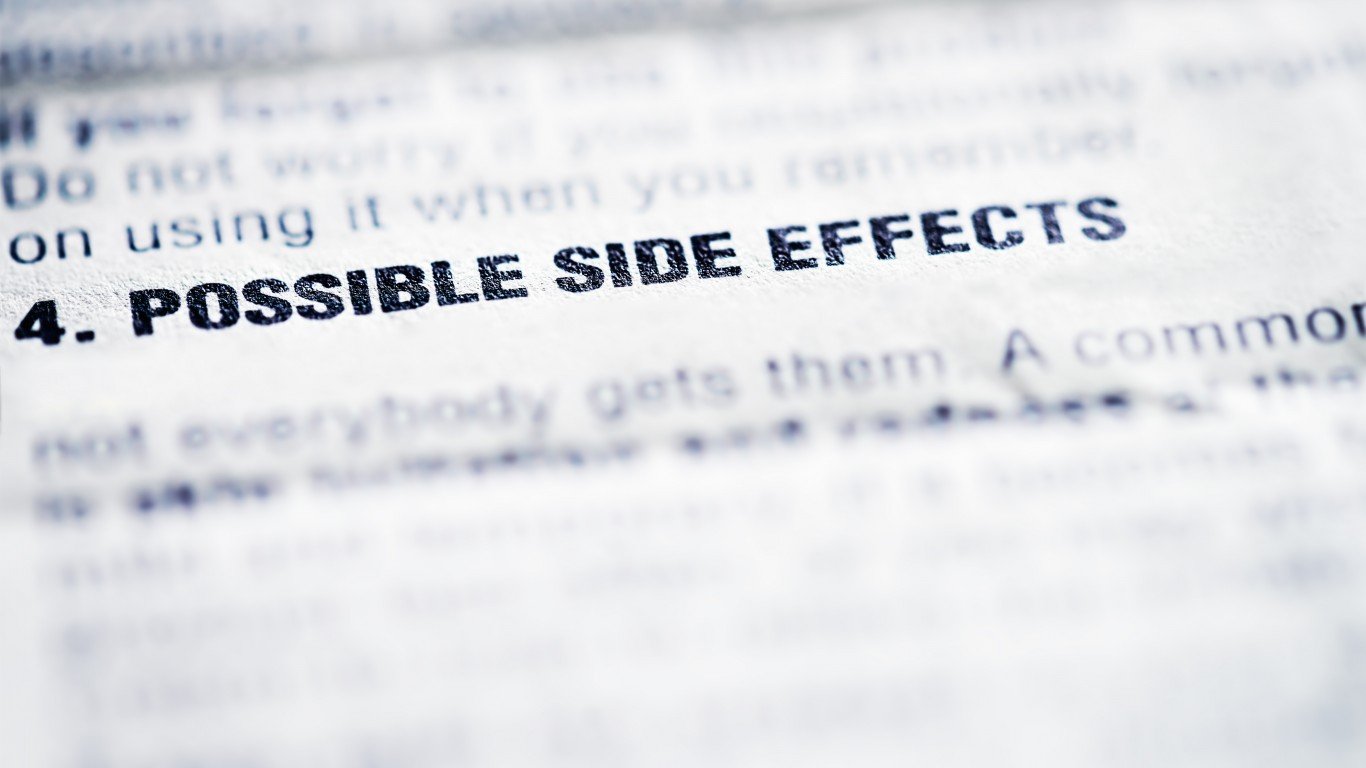
11. Losing weight is all about willpower
“Willpower is overrated in its importance,” Hirshberg said. Being overweight or obese has a huge hereditary component, she noted. Taking certain medications plays a significant role, too. Other factors such as stress, poor sleep, and emotional issues can contribute to weight gain. “It’s never just a failure of one individual; that’s just utterly unreasonable,” she added. By and large, however, exercising some willpower over what we choose to put in our mouths certainly can’t hurt.
[in-text-ad]

12. Eliminating an entire food group is a good idea
There have been many diet fads over the years and some of them have been about cutting all fat or all carbs. But these diets have never lasted, and the reason is simple — they don’t work, Brown noted. “We need protein, carbs, and fats.” The body won’t function properly if it’s missing one food group and will go into survival mode trying to make up for the loss. “Such extreme changes never lead to long-term results,” Brown added.

13. Intense workouts are better for weight loss
Intense workouts will get you more bang for your buck at the beginning of your weight loss journey, Fink said. “But you can’t do it every day — it’s not a healthy way to lose weight.” You have to vary the workouts and you have to give your body time to rest. Otherwise, your risk of injuries and not recovering as well increases significantly, she noted. You’re probably going to gain all the lost weight back once you’re injured and unable to work out for weeks.
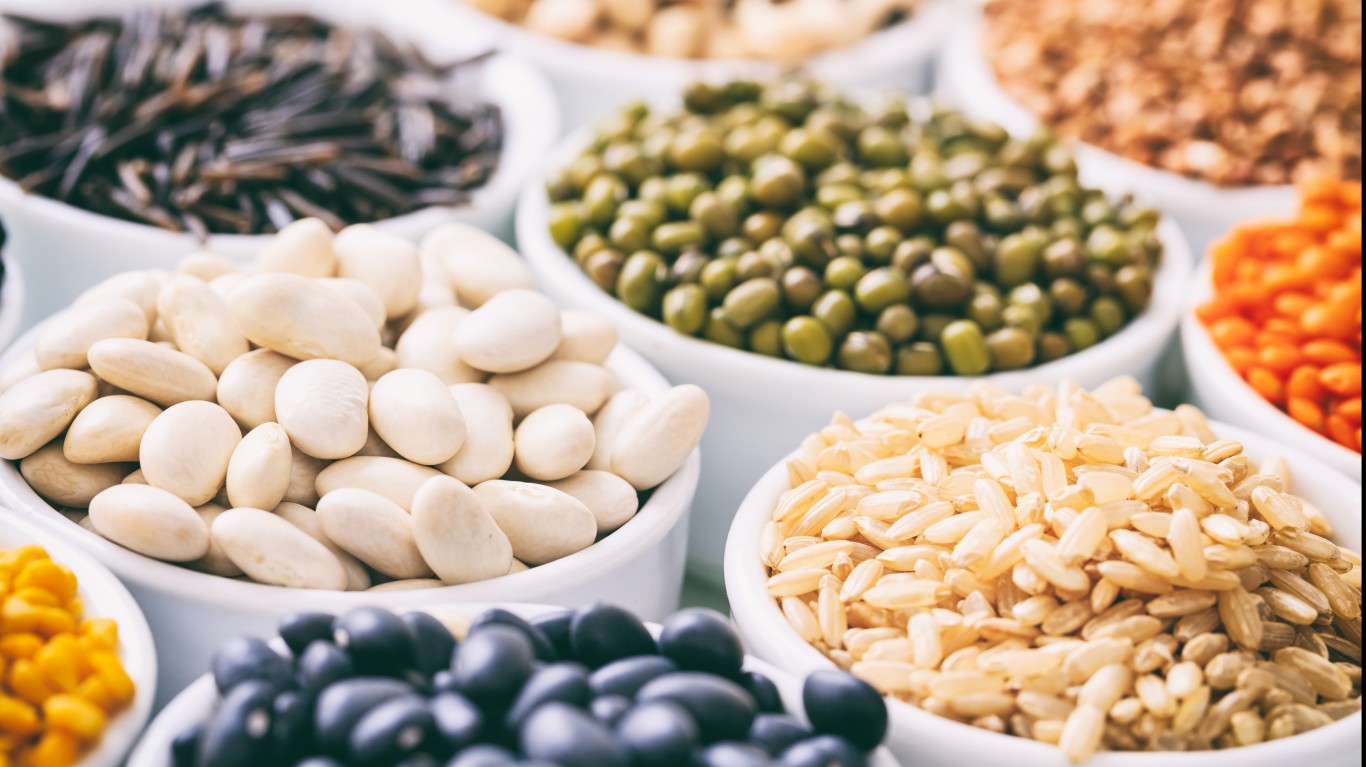
14. Healthy foods are unaffordable
There is a famous comparison between a $5 fast food menu item or, say, a pound of apples that can easily cost as high as $4 — and we’re not even talking organic. But healthy foods don’t always have to break the bank. “Beans and rice are a very affordable option,” Hirshberg said. “You get cheap protein along with carbs and amino acids you need.” While fresh produce can be expensive, you can buy frozen or in-season fruits or vegetables, which are much less expensive.
[in-text-ad-2]

15. 3 meals and 2 snacks a day is best
The three meals and two snacks a day eating formula has been popular for a few years, and some people swear by it. While it may work for some people, the reality is that everybody is different and one solution may not be right for everyone. “You should eat when you’re hungry,” Hirshberg said. Putting off a meal just to fit into some regime can easily lead to overeating later because you’ll be starving, she noted. There is nothing wrong with eating when hungry — you just have to eat healthy food, she added.

16. Cardio is the only way to lose weight
Doing cardio is an effective strategy for reducing overall body fat, but it’s just one of many components. The real picture is a bit more complex. “Most people don’t work out enough to maintain muscle mass, which is important for weight loss as well as maintaining a healthy weight,” Fink said. “You don’t have to lift weights every day — twice or three times a week is enough.”
A Harvard T.H. Chan School of Public Health study found that combining cardio with strength training was the most optimal way to lose weight. According to the research, men who increased the time they spent lifting weights gained less weight around the waist than men who focused on aerobic exercise.
[in-text-ad]

17. You can never oversnack
Some people forget that calories from snacks are still calories that count towards our daily recommended allotment — a very general average recommendation is 2,000 calories. So having a lot of snacks during the day — in addition to regular meals — can result in weight gain. “Having a snack more often than every three hours is not usually good for you,” according to Hirshberg.

18. You need sports drinks after working out
Sports drinks are a popular beverage among fitness enthusiasts. They replace the lost water and electrolytes while working out. But water is enough, according to Fink. “Most people don’t work out hard enough to need all the sugar in these sports drinks,” she said. A single sports drink can have as many as five teaspoons of sugar and a total of 90 calories, undoing much of what you’ve just achieved working out. Experts at the Nutrition Source and the Department of Nutrition at Harvard School of Public Health advise to only drink those “infrequently and sparingly, if at all.”
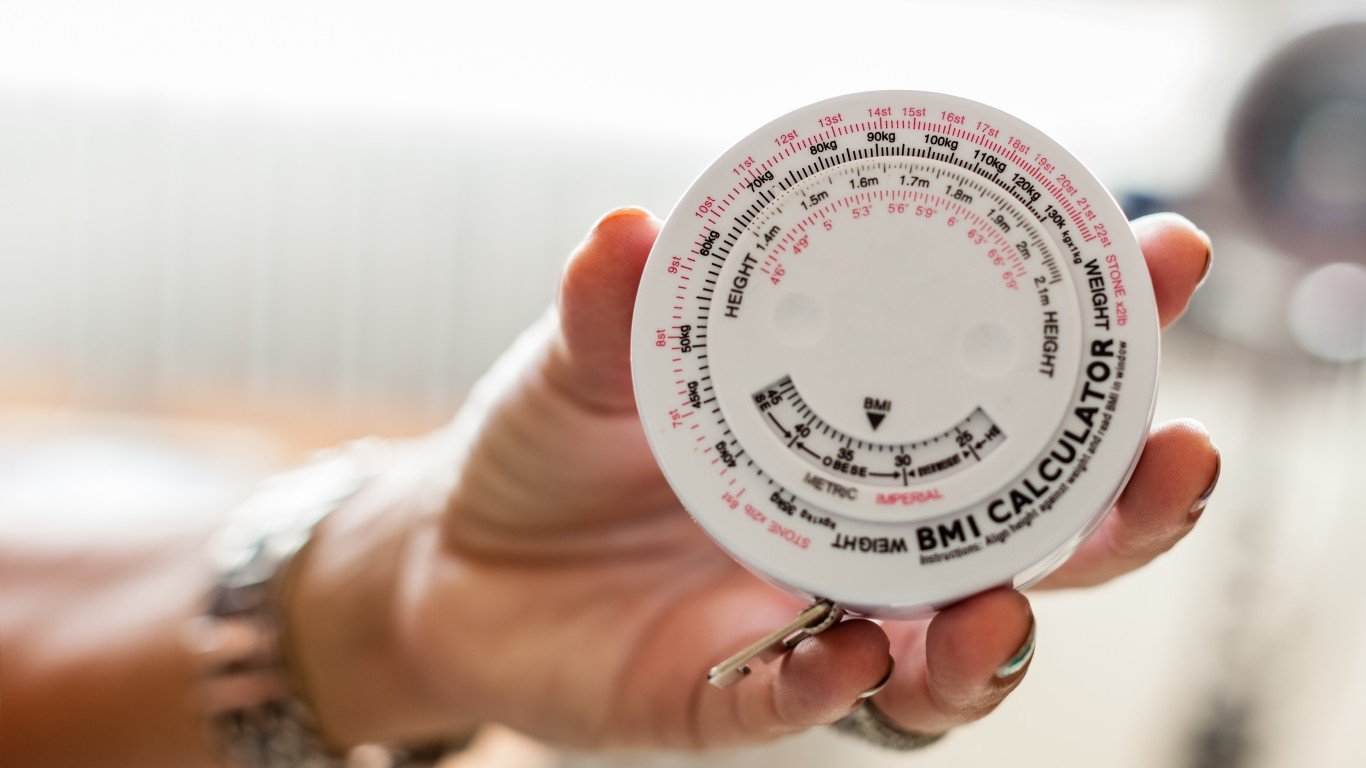
19. BMI is a good health measurement
BMI is short for body mass index and is calculated based on a person’s height and weight. BMI levels are broken down into four: underweight, normal, overweight, and obese. Though some in the medical field consider BMI to be a fine gauge for obesity, others think it is obsolete. It’s just a number that doesn’t take into account important health factors such as cholesterol levels or blood pressure, according to Brown. It also doesn’t tell you where fat is stored. Having fat around the waist is much worse than having it in other parts of the body as it may increase the risk of heart disease and diabetes.
[in-text-ad-2]

20. You burn fat first
It seems logical that the body will burn fat if it’s not getting enough energy. In fact, fat is the last thing the body breaks down to fuel the body. Before fat, the body burns muscle. “In the long-term you’re looking at a rebound effect,” Brown said. And when you start eating normal amounts, as you will inevitably do, you may gain more weight than you’ve lost.
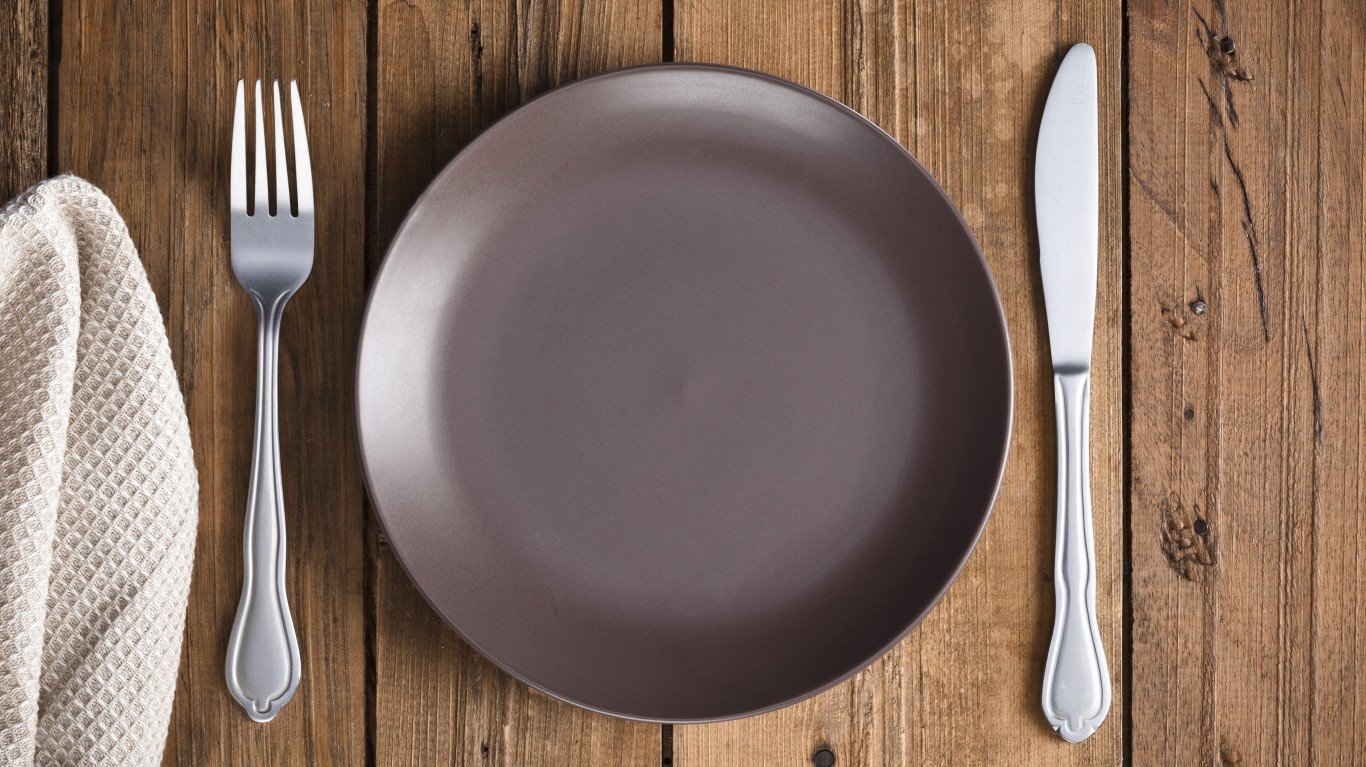
21. Detoxing is a good way to lose weight
When you use some detoxification method you found online (there is no evidence any of these “cleanse” your body or work), the weight loss effect is only temporary, and people usually lose just water weight. Many detoxing diets basically consist of consuming just some juices and herbal supplements. Most adults need about 2,000 calories a day. But the body is a complex machine and it needs vitamins, minerals, and other nutrients to stay healthy so it doesn’t go into famine mode, which may eventually lead to weight gain, according to Brown.
[in-text-ad]

22. Low- or non-fat is healthier
When you see low- or non-fat on the label, it sounds appealing. Fat is usually a “bad” word and nobody wants to consume a lot of it. Many companies process their products to remove the fat, but the problem is that much of the flavor is lost, too — so they make the products taste better by adding artificial sweeteners or sugar. Flour and other thickeners, which can add calories, are often added as well. Read the labels. If you see a lot of sugar and additives, put the product down and walk away. It’s more about the kind of fat you consume rather than limiting it, Hirhsberg noted. The American Heart Association recommends about 30% of a daily diet to consist of healthy monounsaturated fats such as olive oil, nuts, or fish.

23. All processed foods are terrible for you
The term “processed foods” usually has a negative connotation. Many people are confusing it with “things added to your food that you can’t pronounce,” Brown said. Bread, cheese, milk, frozen fruits and vegetables, cooked meat — they are all processed foods. Read the ingredients label.
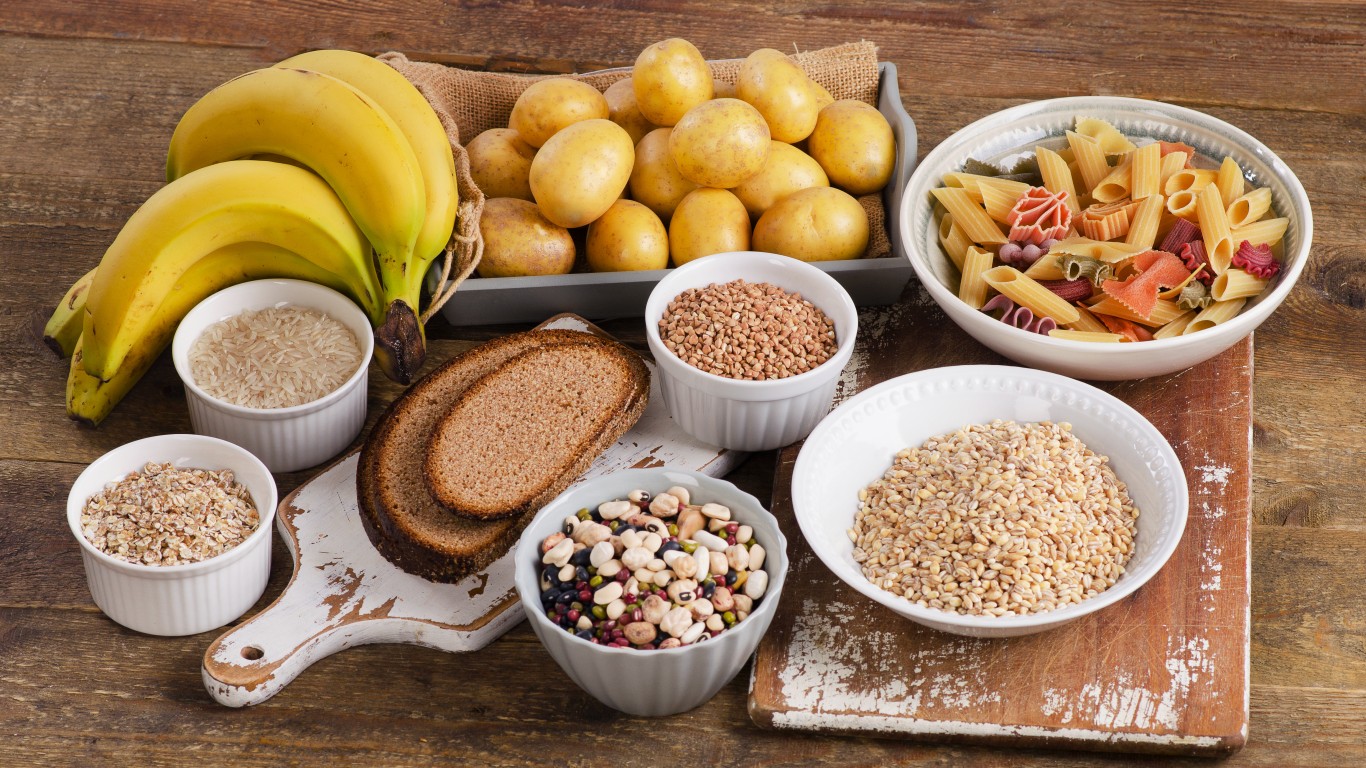
24. You have to stop eating carbs
Have you ever tried a low-carb diet and noticed you’re moody and in a general state of brain fog? There’s a perfectly logical explanation for that. “Carbs are the only fuel the brain will accept,” Hirshberg said. Unlike muscle, for example, the brain cannot use fat for energy. A 2008 study found that women on a low-carb diet suffered from impaired reaction time and worse memory — both of which were restored to normal levels once carbs were reintroduced into their diet. Limiting carbs may help certain people with health conditions such as diabetes, Hirshberg said.
[in-text-ad-2]
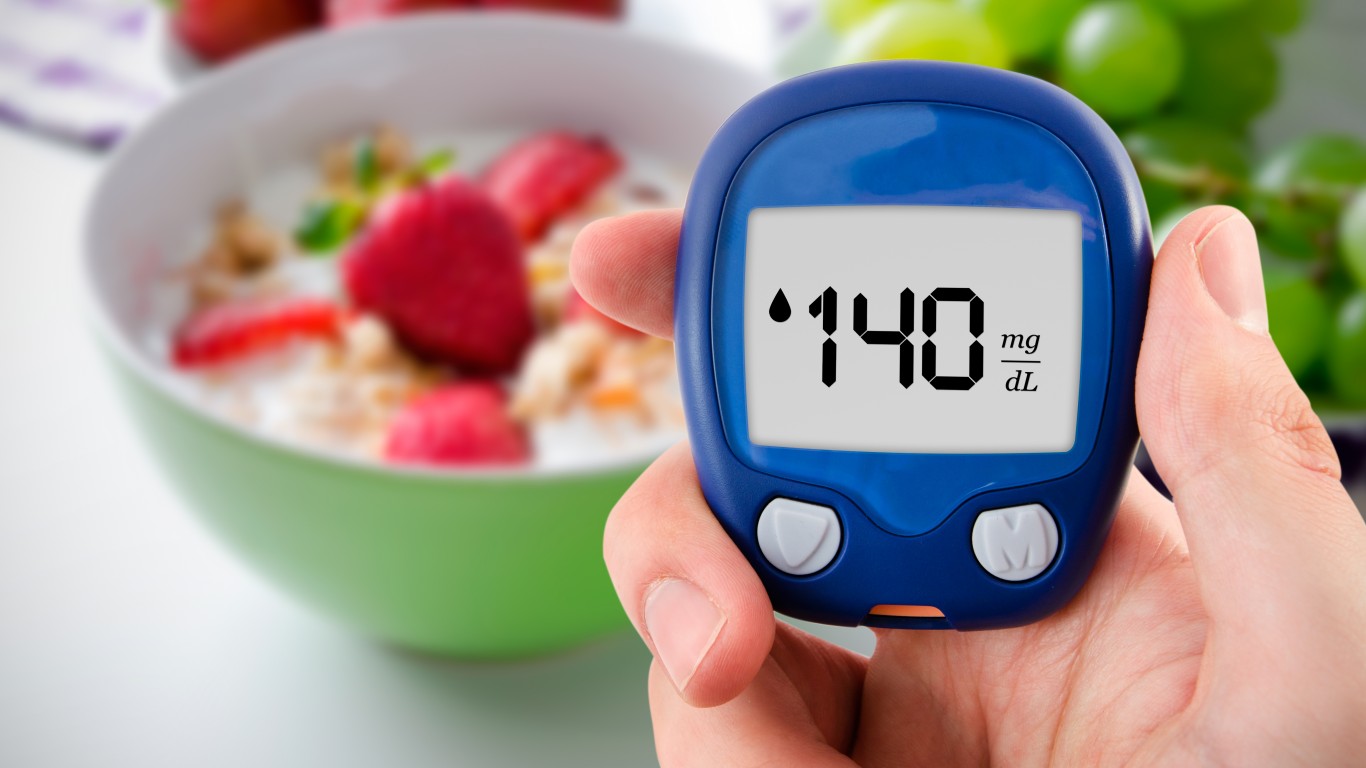
25. Skinny means healthy
People can be healthy at all sizes, and unhealthy at all sizes, Hirshberg noted. While being overweight may increase the risk of certain conditions, being thin doesn’t come danger-free. You may fit in your skinny jeans, but you can still have high cholesterol levels, high blood sugar, or high blood pressure. You can develop diabetes, too. “People have always been of different shapes and sizes,” Hirshberg said. “It’s just us magically deciding one day that one shape is better than the other.”

26. Starving is a good way to lose weight
The body’s only energy source is the food a person consumes. When deprived of that, the body will go to great lengths to preserve energy, according to Hirshberg. At the beginning of a deprivation people may lose some weight — water, muscle, and even fat — but after a few weeks they will gain even more back, she added. “That’s the harm people often miss — undereating is not sustainable.”
[in-text-ad]

27. Skipping meals is a good idea
Like starving, skipping meals is not a good way to lose weight in the long-term. At first, blood sugar levels drop, making you feel tired. Then you lose water weight and muscle. Fat is stored because the body goes into a “crisis” mode, thinking it needs to preserve as much energy as possible, Hirshberg noted. Hormones that control hunger and satiety are released, setting you up for overeating later.
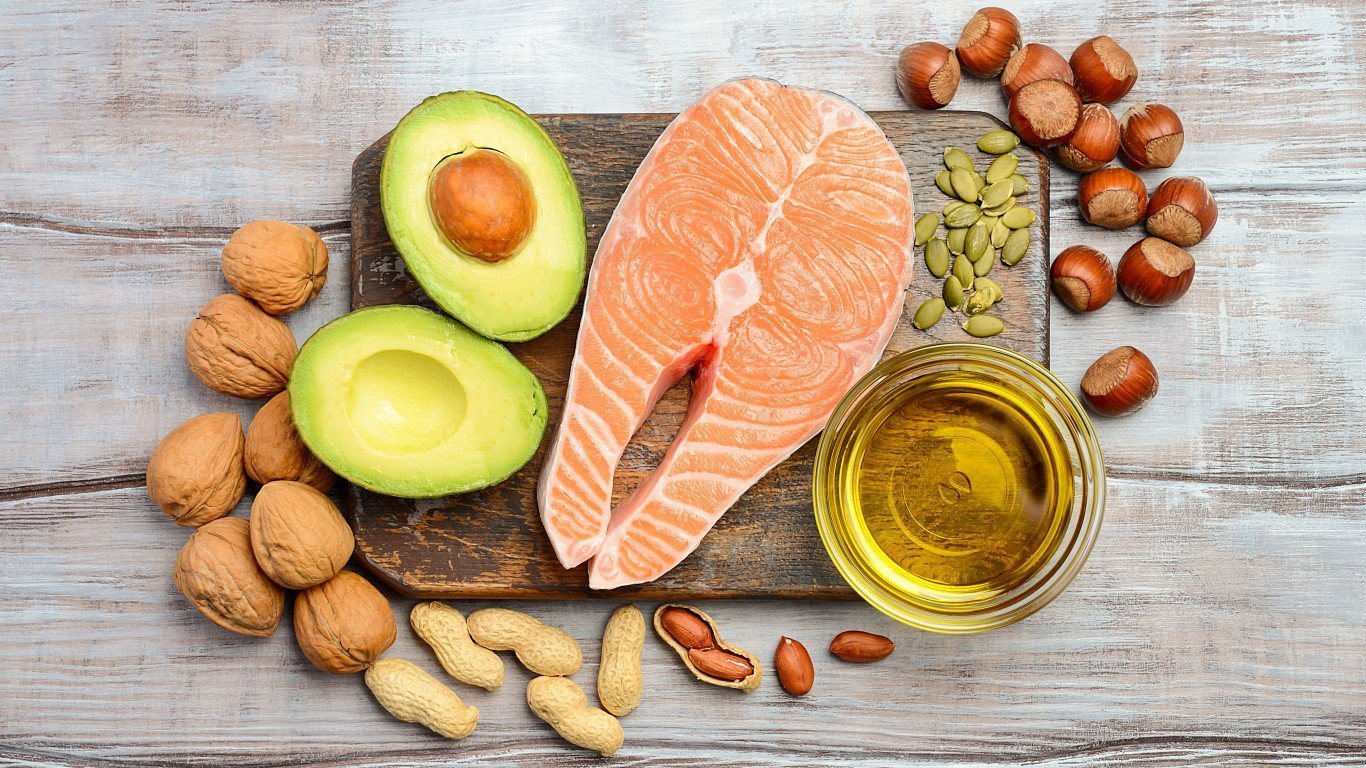
28. All fat is bad
Not all fat is created equal, and the body needs the healthy kind — essential fatty acids — as its name suggests. You can only get these from foods such as fish, nuts, avocado, eggs, chia seeds, olive oil, and some fortified foods. Omega-3s are essential for building healthy cells. “Most people are happy to eat these foods when I explain how good they are for them,” Hirshberg said.
Sponsored: Find a Qualified Financial Advisor
Finding a qualified financial advisor doesn’t have to be hard. SmartAsset’s free tool matches you with up to 3 fiduciary financial advisors in your area in 5 minutes. Each advisor has been vetted by SmartAsset and is held to a fiduciary standard to act in your best interests. If you’re ready to be matched with local advisors that can help you achieve your financial goals, get started now.
Thank you for reading! Have some feedback for us?
Contact the 24/7 Wall St. editorial team.
 24/7 Wall St.
24/7 Wall St. 24/7 Wall St.
24/7 Wall St.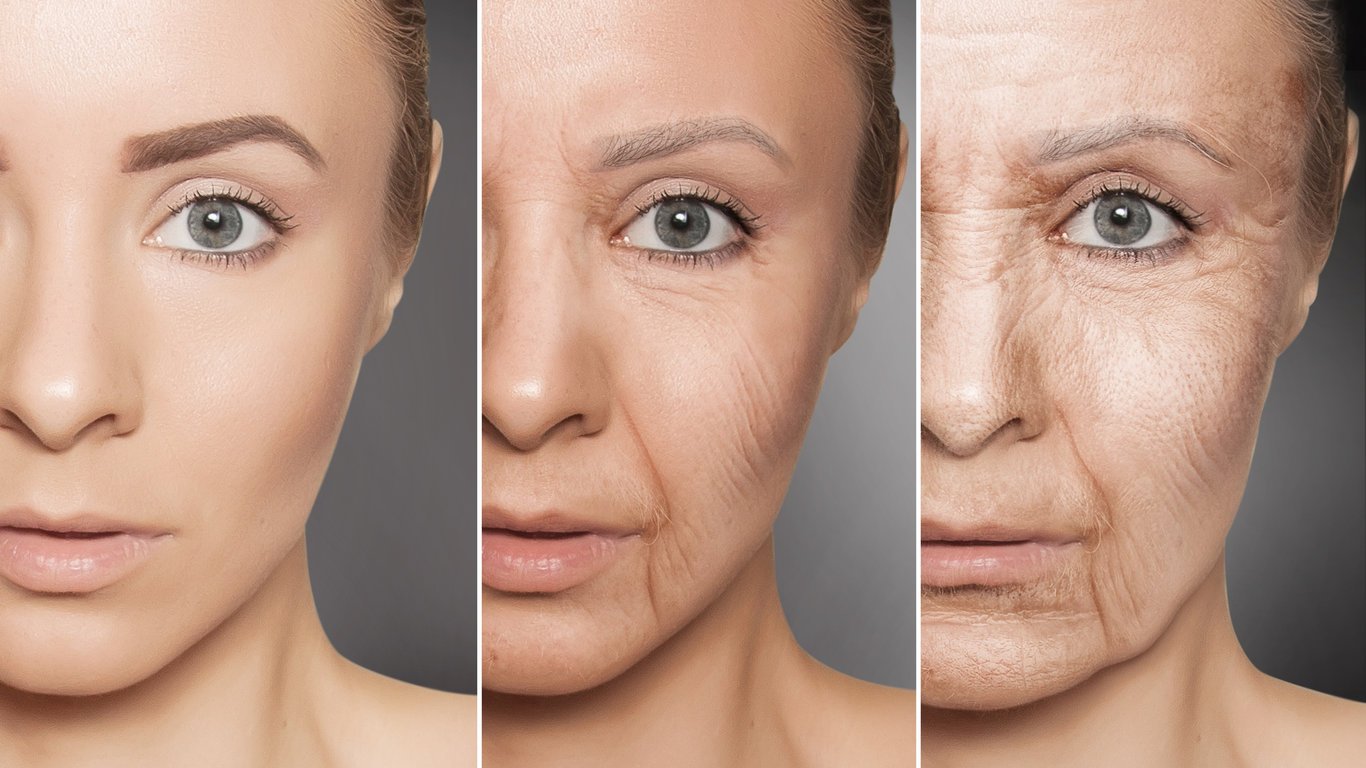 24/7 Wall St.
24/7 Wall St.


